Hi-Riding Hybrid Comfort - Toyota C-HR Hybrid 1.8
With much anticipation, many of us have waited in baited breath for the Toyota C-HR to hit our shores. We got our hands on the hybrid version, and the car in the flesh does not disappoint one bit.


With much anticipation, many of us have waited in baited breath for the Toyota C-HR to hit our shores.
We got our hands on the hybrid version, and the car in the flesh does not disappoint one bit.
Frontal styling does carry Toyota’s current design language of a small nose, with expanding headlamps out from the middle. It does look strikingly good. But, as with convention, it really all stops there at the nose.
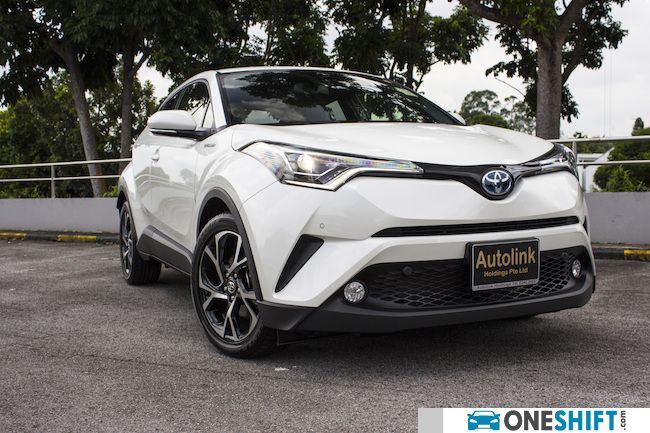
Not many concepts are able to keep their radical looks once they make their way from paper to full-on realisation. The C-HR (especially in Toyota’s case) is one of those rare ones.
There are plenty of angular bulges formed with the sheet metal, giving the car its mild origami-like appearance.
The distinctive sweeping fold, which flows from the hood, above the headlamps, flow downward onto the front door, only to rise drastically at the rear door, gives the C-HR its high-riding appearance. Black side plastic trim angled the downward, adds to the illusion of lift in-between the wheels. 18 inch styled rims hold 225/50 tyres, which are surrounded by black plastic trim around the wheel arches.
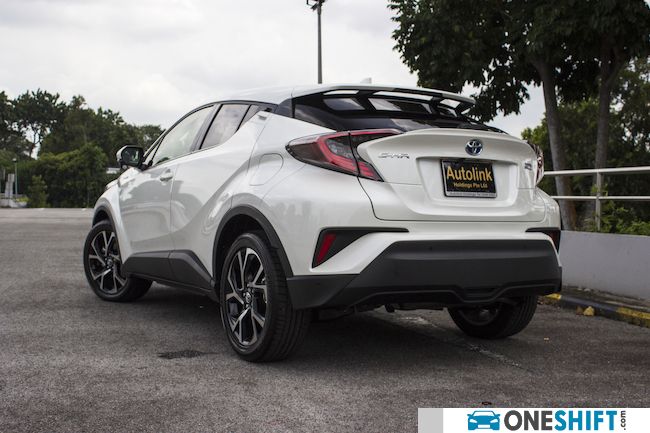
Rear wheel arches seem to protrude due to the tapering in of the rear end, including the C pillar. Tail lamps follow in-line with body sculpting and seem to carry the rear fascia, which houses the license plate holder, and all the branding bits of the car. In keeping with the high-riding looks, there is plenty of black plastic trim at the base, behind the vehicle to create this illusion. With these many curves on the body, it is really a feat for Toyota to get their shut lines consistent throughout the car, and they did nail it.
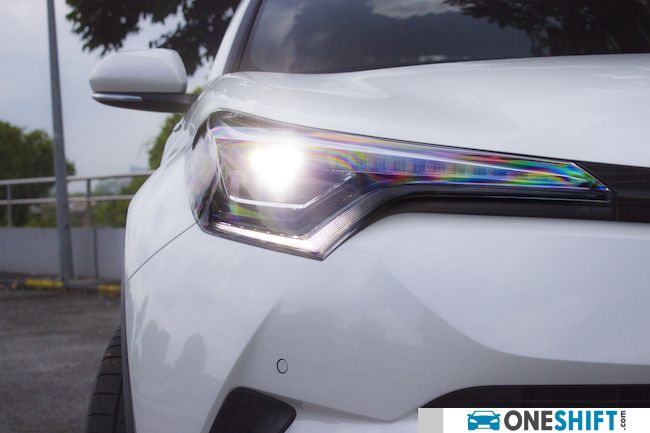
Do not be fooled though, the C-HR is actually rather easy to enter and exit from. Ride height is similar to most ‘soft roaders’, with just the right ground clearance and seat height for you to not crouch uncomfortably when you enter the front. Due to the radical rear door shape, passengers to the rear do get some privacy, with the window frame climbing steeply upward and covering about a third of where we would traditionally see some window at.
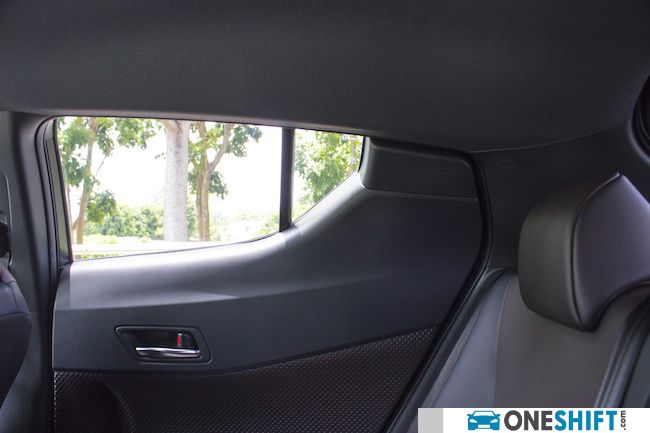
Seat comfort in the C-HR is good, especially if you are the kind who loves long journeys up North. Our test vehicle came with a burgundy coloured trim for the seats, dash and door cards. As mentioned earlier, bringing a concept car to life, with many of the design elements have seen realisation. A gaze upward from the front seats, reveals detailing done to the roof lining, just to make the C-HR that little bit more special. Legroom is pretty decent, helped by a good 2,640mm of wheelbase between the front and rear wheels.
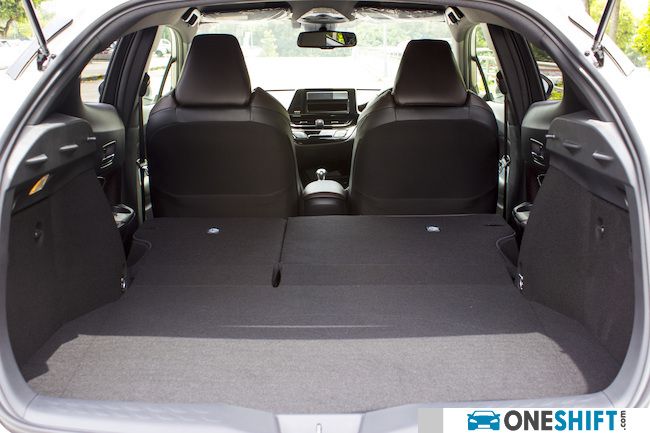
Cargo room in the boot is further helped with a near rectangular shaped loading area, and a flat floor. Rear seats fold flat in traditional 60:40 format to accommodate much larger items.
The dash features an easy to understand layout, with a 2-DIN space for your in-car entertainment unit. On the top of the dash, lies a layer of burgundy trim, which also extends above the instrument binnacle. There is a raised ‘transmission’ tunnel, with a thick gear selector, I believe Toyota did this to emphasise the C-HR’s ‘softroading’ intentions.
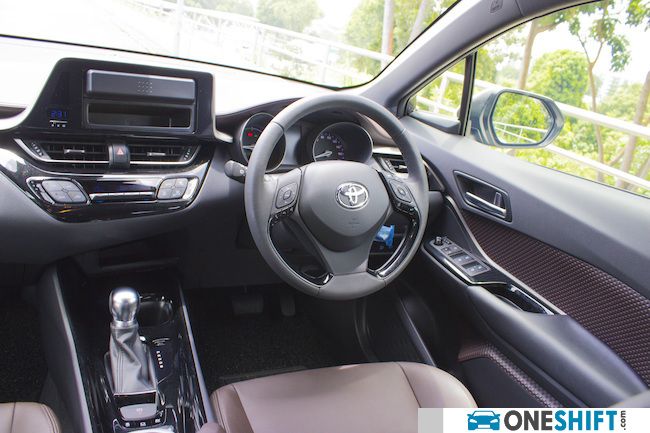
As with most cars these days, the C-HR’s electric power steering wheel is decked out with plenty of switches and buttons, with toggles for audio, mobile, cruise control and even driver aids like their lane departure warning system. To add to the list of equipment, the C-HR is also equipped with an automated parking brake, in the form of a large switch located behind the gearshift selector.
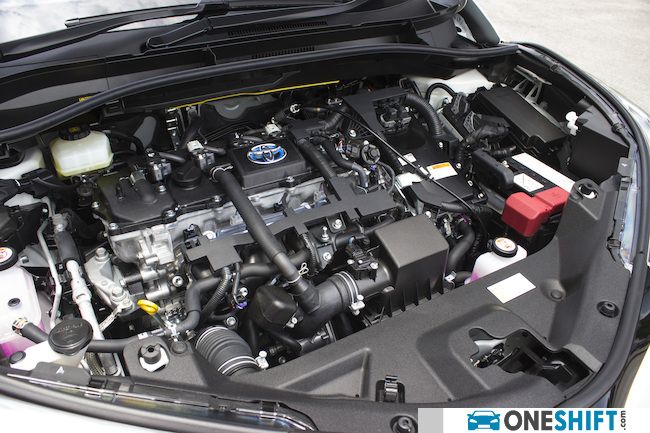
Powering the C-HR is a 1.8 litre, giving out 98hp, but together with the electric motors providing the rest of the power, you get a good 134hp, and then there is the torque. At a max of 207Nm, there is plenty on tap for normal driving, or if and when you feel the need to overtake. Gearshifts are provided by a smooth-shifting Electronic CVT, while the drive is from the front wheels (more sensible than 4wd, if fuel efficiency is important to you).
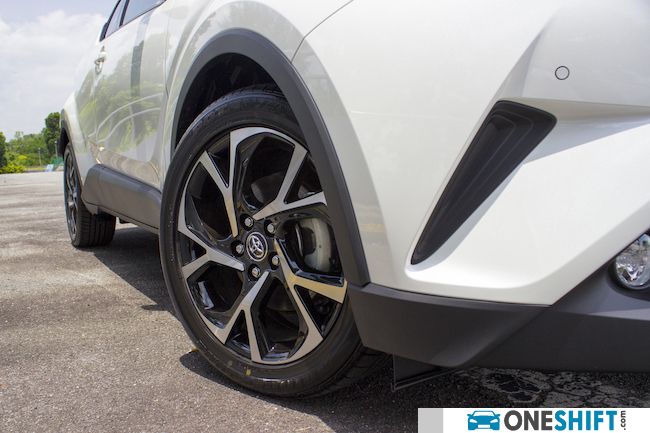
In all, what makes the C-HR so desirable is the radical styling. But without compromise, the sensible interior space, together with the flat cargo loading area, makes this one very attractive crossover.
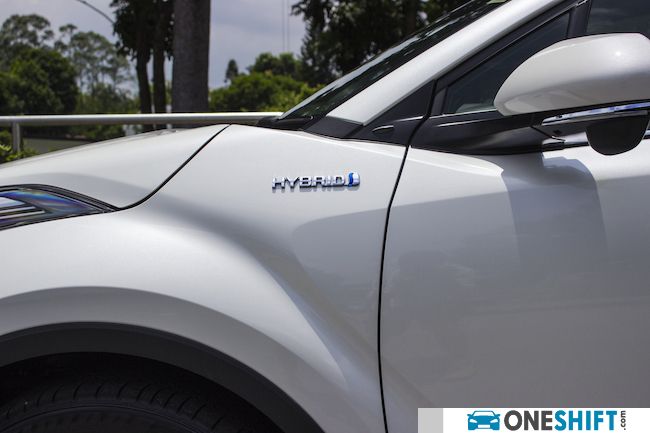

Credits:


Get the Best Price for your used car
from 500+ dealers in 24 hours

- Convenient and Hassle-Free
- Consumer Protection
Transparent Process
With No Obligation








